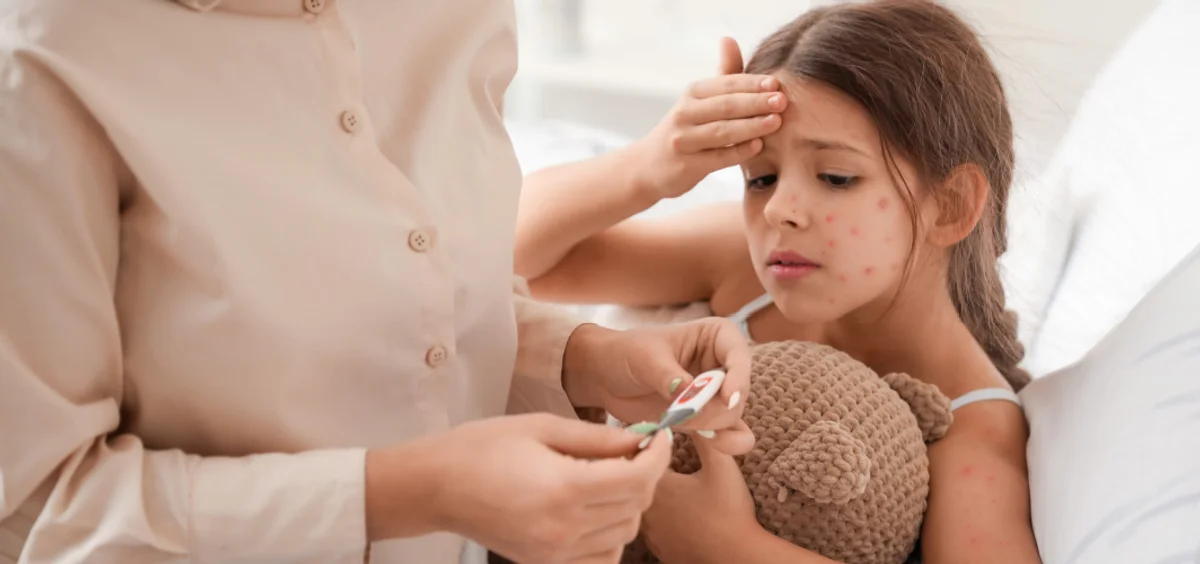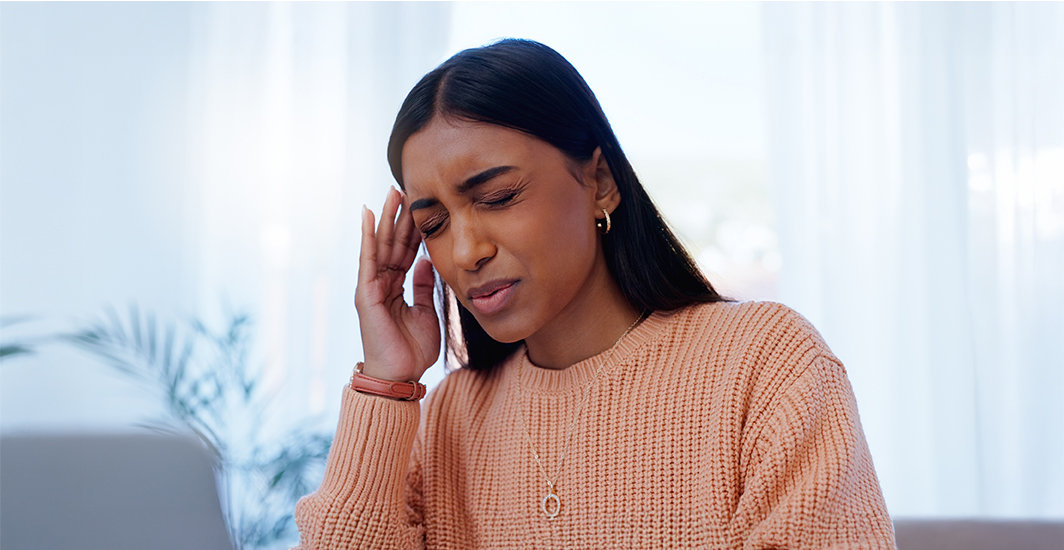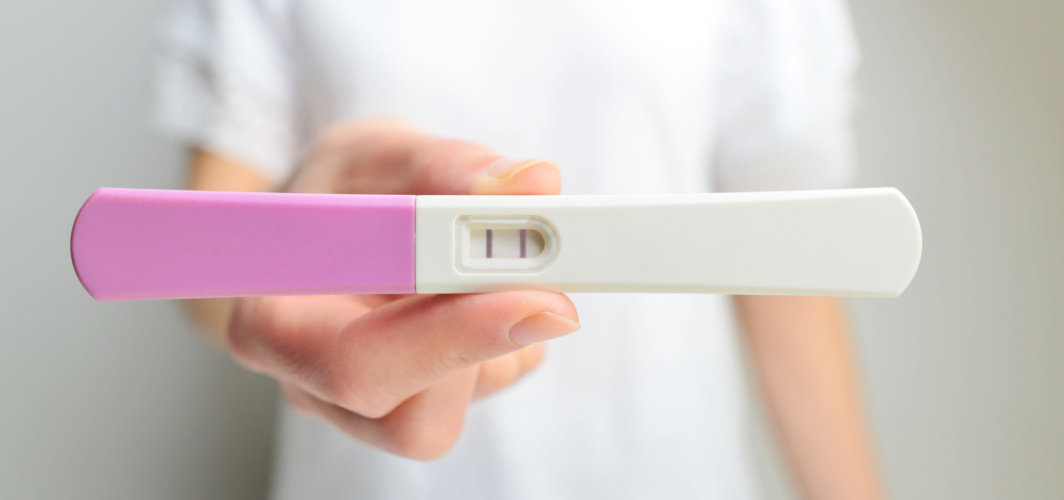- Home
- Blog
- General Health
How To Treat Chickenpox At Home?
General Health
How To Treat Chickenpox At Home?
By Apollo Pharmacy, Published on- 29 August 2023, Updated on -23 August 2024
Share this article
0
0 like

Chickenpox is a highly contagious viral infection caused by the varicella-zoster virus. It primarily affects children but adults can also get infected if they have not had chickenpox before. The virus spreads through respiratory droplets or direct contact with the skin lesions of an infected person. Although there is no cure for chickenpox, several home remedies can help manage the symptoms. Let's know more.
What is Chickenpox?
Chickenpox is a common childhood disease in India, with most cases occurring between the ages of 1 to 12 years. Common symptoms of chickenpox include rash, fever and fatigue.
Early treatment of chickenpox is crucial to reduce discomfort, prevent complications and minimise the risk of spreading the infection to others. Further, vaccination against chickenpox is recommended to prevent the disease and its complications.
Diagnosing Chickenpox
Recognising the symptoms of chickenpox is the first step in diagnosing the condition. The most common symptoms include:
- Fever
- Feeling unwell
- A rash that typically begins as red spots and then transforms into fluid-filled blisters, eventually forming scabs before healing.
- Headache
- Fatigue
- Loss of appetite
If you suspect you or your child has chickenpox, it is essential to consult a healthcare professional for confirmation. They will examine the rash and take into account your medical history and symptoms. In some cases, they may recommend laboratory tests to confirm the diagnosis.
NOTE: Remember, self-diagnosis is not recommended for chickenpox as other conditions can mimic its symptoms. A doctor's expertise is necessary to ensure an accurate diagnosis and appropriate treatment.
Treating Chickenpox at Home
Treating Chickenpox at home can be done using a few simple steps to alleviate symptoms and promote recovery. Following a few guidelines as listed below will help manage the condition effectively.
1. Isolation and Rest
- It is important to isolate the affected individual to prevent the spread of chickenpox.
- Make sure the affected individual gets plenty of rest to aid in healing.
2. Maintaining Personal Hygiene
- Proper handwashing techniques are crucial for preventing the spread of the virus.
- Regularly changing clothes and bedding will help maintain cleanliness and prevent infection.
3. Soothing the Itchiness
- Cool baths or showers can provide relief from the itchiness associated with chickenpox.
- Applying calamine lotion or creams can also help alleviate itching.
- Oatmeal baths or compresses can soothe the skin and reduce irritation.
4. Relieving Fever and Discomfort
Over-the-counter medications such as acetaminophen or paracetamol can be used to lower fever and reduce discomfort.
Drinking plenty of fluids is important to stay hydrated.
Resting in a cool and comfortable environment will help ease symptoms.
Dietary Considerations During Chickenpox
Dietary is an essential part of recovering from this highly contagious viral infection. By nourishing your body with the right nutrients, you can strengthen your immune system, thus reducing the risk of complications and aiding faster healing.
The affected person must consume a balanced diet loaded with the necessary vitamins, minerals and antioxidants that support immune function. It helps in repairing damaged tissues and cells.
Recommended Foods during chickenpox include:
1. Nutrient-Rich Fruits and Vegetables
- Citrus fruits like oranges, lemons and grapefruits are rich in vitamin C, which boosts immunity.
- Leafy green vegetables like spinach and kale are packed with vitamins A, C and E.
- Include other colourful fruits and vegetables like tomatoes, bell peppers and berries for their antioxidants.
2. Protein Sources
- Opt for lean protein sources such as chicken, fish, eggs, lentils and beans to aid in tissue repair.
- Dairy products like milk and yoghurt can also provide essential proteins.
3. Hydrating Fluids and Herbal Teas
- Drink plenty of water to stay hydrated and flush out toxins from the body.
- Herbal teas like chamomile or ginger tea can soothe discomfort and promote relaxation.
- Remember to avoid spicy, oily or sugary foods that may worsen symptoms. Stay away from junk food and prioritise wholesome options.
Natural Remedies for Chickenpox Relief
Chickenpox is a highly contagious viral infection that causes itchy blisters and can be quite uncomfortable. Natural remedies can help alleviate the symptoms and provide relief. Let us explore some herbal remedies that have been traditionally used in India to ease itchiness and reduce inflammation associated with chickenpox.
1. Neem Leaves and Oil
Neem is known for its anti-inflammatory and antiviral properties. Applying neem oil or crushing neem leaves to make a paste and applying it to the affected areas can help soothe itching and promote healing.
2. Sandalwood Paste or Oil
Sandalwood has cooling properties that can provide relief from the discomfort of chickenpox. Applying sandalwood paste or mixing sandalwood oil with a carrier oil and gently massaging it onto the skin can help reduce inflammation and soothe the skin.
3. Aloe Vera Gel or Juice
Aloe vera is well-known for its anti-inflammatory and soothing properties. Applying freshly extracted aloe vera gel or drinking aloe vera juice can help nourish the skin, reduce itching and promote healing.
When to Seek Medical Attention
While most cases of chickenpox resolve on their own without medical intervention, there are certain circumstances where seeking medical attention is crucial. The below listed are some important points to consider:
- Difficulty breathing or shortness of breath
- Chest pain or severe abdominal pain
- Dizziness or confusion
- Excessive vomiting
- Severe headache or stiff neck
- Unusual bleeding or bruising
- Intense itching
- Widespread rash
- Persistent fever above 102°F
Infants, pregnant women, individuals with weakened immune systems, and those with chronic illnesses should also consult a doctor if they experience signs of chickenpox.
Preventing the Spread of Chickenpox
Isolation measures play a crucial role in preventing the spread of chickenpox. If you or your child has been diagnosed with chickenpox, it is essential to take the following precautions to avoid infecting others:
Stay at Home: Keep the infected person at home until all the blisters have scabbed over, usually about 5-7 days. This helps minimise contact with others.
Avoid Close Contact: Limit contact with non-infected individuals, especially those who have not had chickenpox or received the vaccine.
Practise Good Hygiene: Wash hands frequently with soap and water, especially after touching the blisters or any surfaces contaminated with them.
In addition to isolation measures, vaccination is key in preventing chickenpox. The vaccine is recommended for:
- Children: The two-dose vaccine series is typically given at ages 12-15 months and 4-6 years.
- Adolescents and Adults: If you have not had chickenpox or received the vaccine, it is advisable to get vaccinated. Two doses are generally recommended for optimal protection.
Summary
To effectively treat chickenpox at home, it is important to prioritise rest, practise good hygiene and maintain a healthy diet. Rest is crucial to allow the body to heal itself. Maintaining proper hygiene is essential to prevent the spread of chickenpox and avoid secondary infections. These simple steps can help promote a speedy recovery and alleviate discomfort associated with the illness. Consult a doctor if there is severe fever, persistent vomiting, difficulty breathing or any other alarming symptoms.
Services
General Health
Frequently asked questions
Yes, bathing can help soothe the itchy blisters. Use lukewarm water and avoid scrubbing the skin.
Oatmeal baths, baking soda paste and calamine lotion can provide relief from itching. Additionally, applying chamomile tea compresses can help reduce inflammation.
Loose-fitting cotton clothing will allow the skin to breathe and minimise irritation.
It is best to consult a healthcare professional before giving any medications to children with chickenpox, as some may not be suitable and may result in an allergic reaction.
Yes, it is important to keep your child at home until all the blisters have crusted over to prevent the spreading of the infection.
Leave Comment
Services
Recommended for you

General Health
Which is the best air purifier?
Choosing the best air purifier involves evaluating room size, filtration types, noise levels, and budget. Top models like Dyson Pure Cool TP04 and IQAir HealthPro Plus cater to varied needs, offering innovative features for optimal air quality and health improvement.

General Health
Orofer XT Tablet: How It Helps In Managing Iron Deficiency Anaemia
Orofer XT tablet is a prescription iron supplement formulated to help patients manage and treat iron deficiency anaemia. Learn more here.

General Health
How To Use Prega News? A Guide For Early Pregnancy Detection
Discover the power of Prega News for early pregnancy detection. Explore its usage, result interpretation, and benefits, empowering yourself for a confident pregnancy journey.
Subscribe
Sign up for our free Health Library Daily Newsletter
Get doctor-approved health tips, news, and more.

